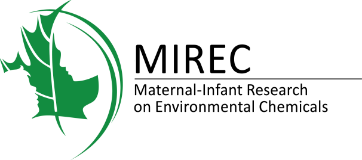
About the
MIREC
Biobank
The MIREC Biobank represents one of the most comprehensive sources of information on pre- and postnatal exposure to environmental chemicals for both mothers and their children.
The Biobank stores all the data and biospecimens from consenting participants collected since the inception of MIREC. The scope of the data and biospecimens makes the Biobank a significant resource for examining possible health effects of exposure to environmental chemicals during pregnancy, infancy, childhood and adolescence.
What can be found in
the MIREC Biobank?
Our Biobank Policies
MIREC Année all rights reserved - Privacy policy
Website by Riposte


